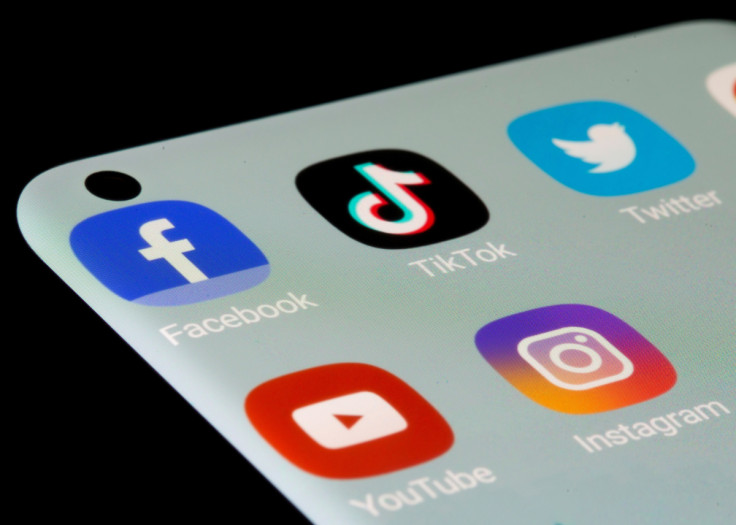
SEATTLE - Mexican drug cartels continue to expand their illicit enterprise all across Mexico and the United States. Not satisfied with that, groups such as the Sinaloa cartel and the Cartel Jalisco Nueva Generación (CJNG) are now expanding their influence over younger generations with the help of the digital world.
From fake job postings to propaganda shared on social media, criminal groups are mostly targeting young people online as they poach young recruits. The use of certain emojis and other imagery are now associated with certain criminal groups, which proves the power and reach they have garnered over social media.
According to the 2024 National Drug Threat Assessment published by the Drug Enforcement Administration (DEA), social media platforms and encrypted apps have extended the cartel's reach into every community in the U.S. and across nearly 50 countries around the world.
In its report, the DEA says drug traffickers and their associates use technology to advertise and sell their products, collect payments, recruit and train couriers, and deliver drugs to customers without having to meet them face-to-face.
Both major Mexican cartels have also turned to video games in order to recruit young people to their ranks. In late October, The Latin Times reported that games such as Call of Duty Mobile, Roblox, Grand Theft Auto and Free Fire were some of the games targeted by the Sinaloa cartel to try and lure in new recruits.
According to a 2013 testimony from a former agent from the U.S. National Security Agency (NSA), Mexican cartels copied the modus operandi of terrorist groups that used games such as World of Warcraft and Second Life to recruit people.
Óscar Balderas, a Mexican journalist, told InSight Crime in 2021 that, after minors are invited to meet in person, they are kidnapped and forced to join the cartels.
"It might not look like the most efficient way to recruit gunmen...but it is a discreet way to do it," Balderas said. "It is a way to invite adolescents to reach out on their own will, to gain their trust," he added.
How do cartels use social media?
For years, law enforcement agencies have been focused on the impact of the so-called darknet —the unmonitored reaches of the internet— as that is one of the largest sources of direct sales of illegal drugs and other illicit goods and services for criminal organizations.
By using certain emojis, numeric codes, imagery and other coded language, cartels can conduct their illicit activities unpunished and leave a small digital footprint that is hard for authorities to follow.
Social media platforms such as Facebook, Snapchat, TikTok and encrypted messaging apps such as Telegram and WhatsApp are also used by cartels to boast about travel, money, cars, weapons and to intimidate rival criminal organizations by brandishing weapons, bragging about crimes committed or threatening acts of violence.
Cartels have even reached ride-share apps
In Arizona, Cochise County has been the epicenter of cartels using social media and ride-share apps to smuggle undocumented immigrants into the United States.
County Sheriff Mark Dannels told CBS News last year that adolescents "all the way to the age of 13 and 12 years of age" were being lured into the illegal trade by drug cartels through social media posts and messages, where they promised them substantial financial rewards for smuggling migrants across the border.
"We have over a hundred juveniles in the last 18 months that we've apprehended in this county smuggling...driving grandma's car, a friend's car, or mom and dad's car down here, and it's social media," Dannels said.
DEA's Operation Last Mile tracked distribution networks across the United States connected to the
Sinaloa and Jalisco cartels. The operation confirmed that the Sinaloa and Jalisco cartels use violent
street gangs and local criminal groups and individuals to flood U.S. communities with fentanyl and
methamphetamine, driving addiction and violence, and killing Americans. It also revealed that the
cartels, their members, and their affiliated drug trafficking organizations in the United States use
social media platforms – like Facebook, Instagram, TikTok, and Snapchat – and encrypted
messaging applications, such as WhatsApp, Telegram, Signal, Wire, and Wickr, to coordinate
logistics and communicate with victims.
Operation Last Mile comprised 1,436 investigations in collaboration with federal, state, and local
law enforcement partners, and resulted in 3,337 arrests. DEA and its partners seized nearly 44
million fentanyl pills; over 6,500 pounds of fentanyl powder; more than 91,000 pounds of
methamphetamine; 8,497 firearms; and in excess of $100 million. Together, the fentanyl pills and
powder equate to almost 193 million deadly doses of fentanyl removed from U.S. communities,
preventing countless potential drug poisoning deaths. Among these cases were hundreds that
involved the use of social media and encrypted communications platforms.
© 2024 Latin Times. All rights reserved. Do not reproduce without permission.











